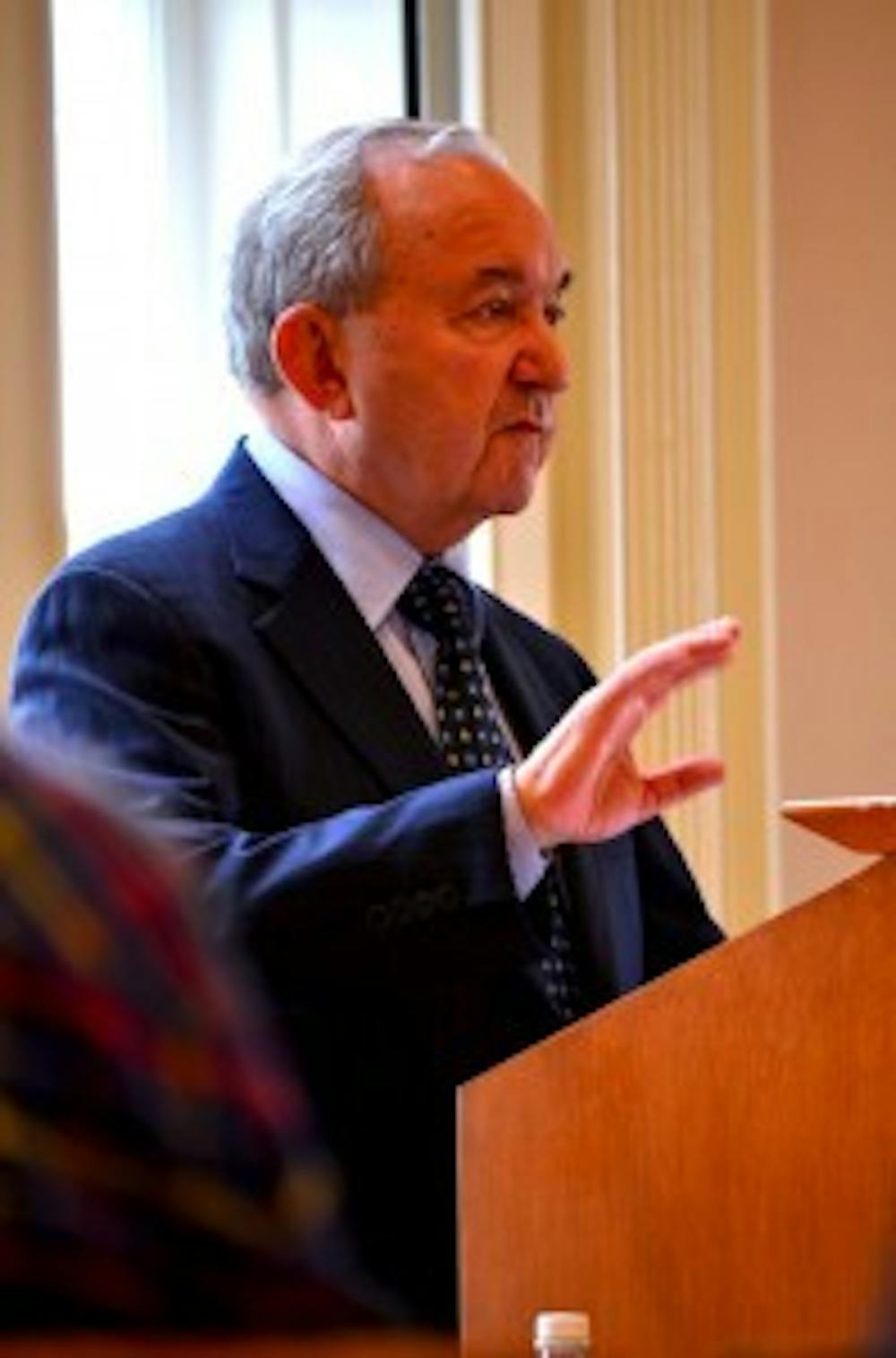South African Richard Goldstone, former chief prosecutor of the international criminal tribunals for Rwanda and the former Yugoslavia, spoke yesterday in Newcomb Hall about the current state of international criminal justice.
Goldstone is a notable and experienced leader in the field of international criminal law. He played a key role in mediating the dissolution of the apartheid system in South Africa, serving as a judge on the country's Supreme Court for more than a decade. He also headed the Goldstone Commission to investigate political violence in South Africa, and served as the co-chairperson for the Human Rights Institution of the International Bar Association.
Assoc. History Prof. Jeffrey Rossman introduced Goldstone as "perhaps the most trusted man in South Africa" for his fair and neutral rulings in the country following the end of apartheid.
"By its nature, the law really only progresses by changes on the ground," Goldstone said, referring to the establishment of the first international criminal tribunals after conflicts in Rwanda and the former Yugoslavia. "It was those two tribunals that begun a new era in international criminal justice."
The Rome Statute of the International Criminal Court, founded in 2002, is the cornerstone of the modern international criminal justice system. The United States did not sign the statute, which Goldstone said was because "powerful countries do not like to be policed."
Currently 120 countries have ratified the statute, but China, India and Russia joined the United States in abstaining.
"Nobody anticipated in 1998 that by the second decade of the 20th century that more than half the members of the UN would be in," Goldstone said. "I don't believe the U.S. will ratify the Rome treaty in the foreseeable future."
Since 2002, the ICC has undertaken various cases against international war criminals. Cases can be referred to the ICC by individual nations, the United Nations Security Council and the U.N. General Assembly. So far the ICC has addressed cases in the Democratic Republic of Congo, Uganda, Libya, Kenya, Colombia and multiple other nations.
The ICC closed its first case Wednesday, finding Congolese rebel leader Thomas Lubanga Dyilo guilty of conscription of child soldiers. Dyilo was a prominent figure in the Ituri conflict, which occurred between the Lendu and Hema ethnic groups in the Democratic Republic of Congo from 1999 to 2003.
While Goldstone expressed optimism about the ICC, he said there are inherent problems with the way it operates, as it lacks a regulating force and therefore "is completely dependent on the cooperation of governments for [its] success." This lack of autonomy makes the ICC "a body with no limbs," Goldstone said.
The Hague's remoteness from the scene of the crimes and delays in prosecution pose additional problems, since investigating crimes in war-stricken areas is difficult, Goldstone said.
He said the failure to get big world powers such as China, the United States, India and Russia to support the ICC, as well as the African Union's skepticism, pose a threat to the court's legitimacy.







